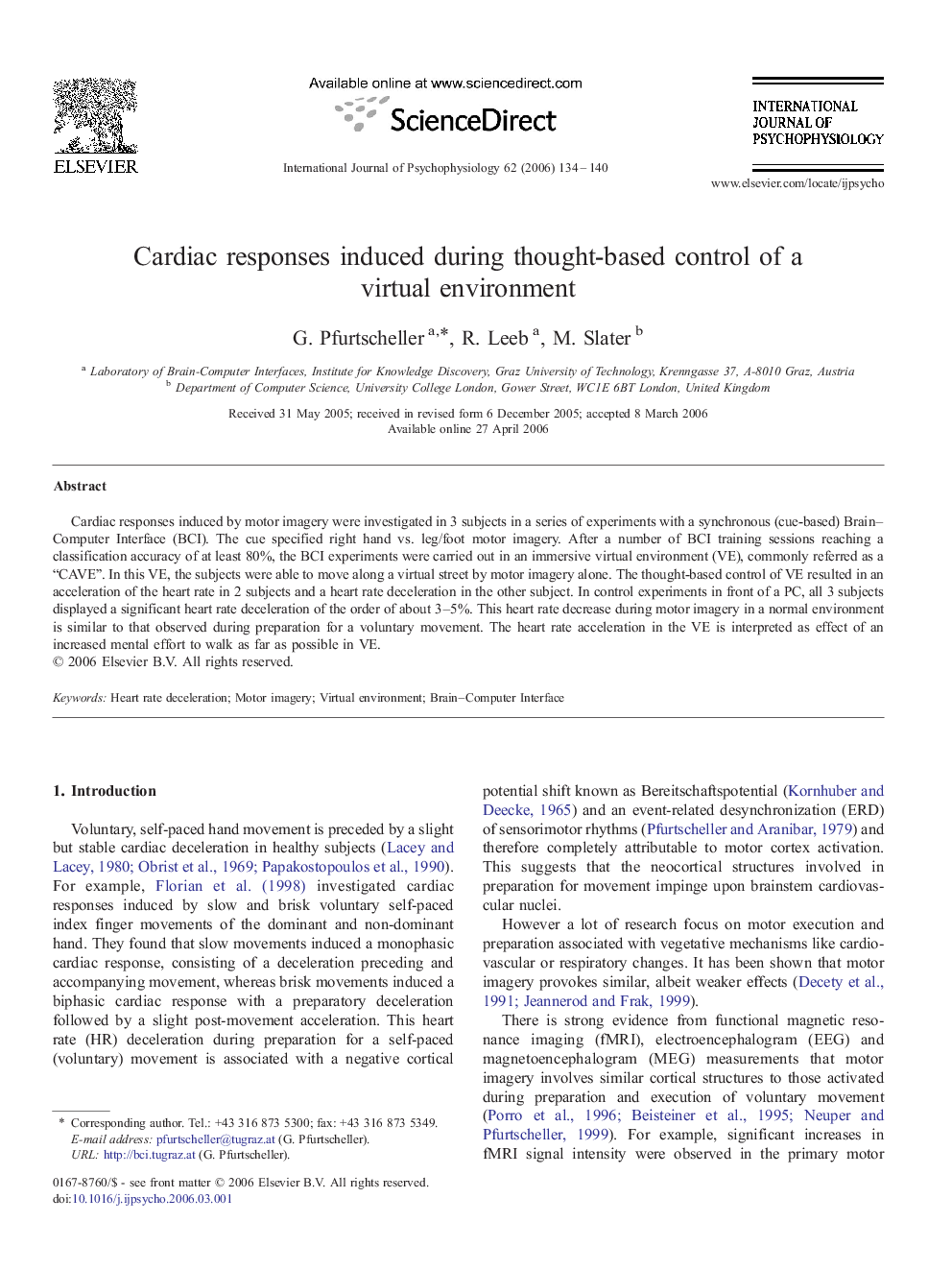| Article ID | Journal | Published Year | Pages | File Type |
|---|---|---|---|---|
| 931338 | International Journal of Psychophysiology | 2006 | 7 Pages |
Cardiac responses induced by motor imagery were investigated in 3 subjects in a series of experiments with a synchronous (cue-based) Brain–Computer Interface (BCI). The cue specified right hand vs. leg/foot motor imagery. After a number of BCI training sessions reaching a classification accuracy of at least 80%, the BCI experiments were carried out in an immersive virtual environment (VE), commonly referred as a “CAVE”. In this VE, the subjects were able to move along a virtual street by motor imagery alone. The thought-based control of VE resulted in an acceleration of the heart rate in 2 subjects and a heart rate deceleration in the other subject. In control experiments in front of a PC, all 3 subjects displayed a significant heart rate deceleration of the order of about 3–5%. This heart rate decrease during motor imagery in a normal environment is similar to that observed during preparation for a voluntary movement. The heart rate acceleration in the VE is interpreted as effect of an increased mental effort to walk as far as possible in VE.
